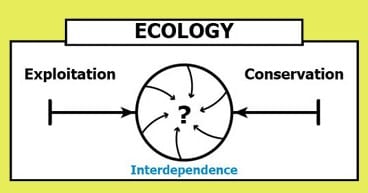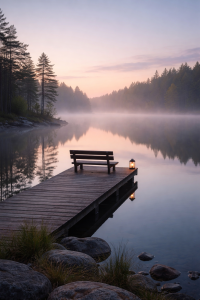As someone who is not trained in the physical sciences, I struggled with what name to give this very important trend. Should I call it an environment or ecology continuum? When I looked at the two sets of definitions below from the World English Dictionary, I opted for the less familiar term of ecology.
Ecology (noun)
- the study of the relationships between living organisms and their environment
- the set of relationships of a particular organism with its environment
- the study of the relationships between human groups and their physical environment
Environment (noun)
- external conditions or surroundings, esp those in which people live or work
- ecology the external surroundings in which a plant or animal lives, which tend to influence its development and behaviour
- the state of being environed; encirclement
- computing an operating system, program, or integrated suite of programs that provides all the facilities necessary for a particular application: a word-processing environment
And here’s why. Historically, our human behaviour in regards to our physical environment has been that of consumption and exploitation. We viewed our natural world not as an extension of ourselves but as tools by which we survive and thrive. By separating ourselves from our environment and not recognizing our interdependency, we adopted an abusive relationship of exploitation supported by an erroneous assumption – Earth’s existence is to benefit and sustain human life. This belief is only a partial truth. Earth’s existence, like our own, is dependent on a much more complex biodiversity than one species.
This view to separate ourselves from our external surroundings resulted in significant pain and suffering — increasing atmospheric carbon dioxide, ocean acidification, deforestation, melting polar ice caps, over-population, toxic waste poisoning, species’ endangerment and extinction. We can no longer delude ourselves by claiming environmentalist paranoia.
Even closer to home, our abusive relationship with our environment is reflected in our own bodies — epidemics such as obesity, alcoholism and diabetes, increasing sensitivities in the form of allergies, multiple forms of stress-related diseases including most mental illness.
There is no doubt in my mind that the paradigms of the past, consumption/exploitation on one hand and conservation/preservation on the other, cannot re-route our current pathway from our own extinction. We practiced both paradigms long before my fifty-six years of life on this planet and yet still find ourselves closing in on our end. This ecological paradox triggers an inner tension and awareness that we must change our behaviours (greed and need) as well as our beliefs (separation and independence). However, this is only the beginning of a transformation that could be our greatest legacy to planet Earth and ourselves. What will ultimately save us all is our commitment to being ecologically minded — one with our environment — in our thoughts, words and deeds.
A quick ‘google’ of web definitions left me with these –
- Interdependence – A dynamic of being mutually and physically responsible to, and sharing a common set of principles with, others.
- Interdependence – The dynamic relationships between all living things and the systems in which those things exist. These relationships are of mutual dependence for the success or survival of each individual constituent and of the whole unit.
- Interdependence – The idea that everything in nature is connected to everything else; what happens to one plant or animal also affects other plants and animals.
- Interdependence – A state where all firms in a market or players in a game, though in competition, are dependent on the actions and strategies of all the other firms or players in that market or game. When players are interdependent, the moves of one will have ramifications for all other players in that game.
I would suggest that the convergence of this ecological paradox is “interdependence”.





